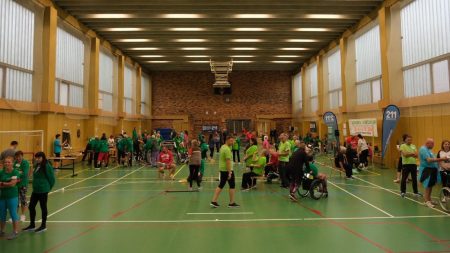ECTRIMS 2013: MS in the Workplace, high on the agenda of European patients’ organisations
10.10.2013A number of 26 patients’ organisations from across Europe, including the European Multiple Sclerosis Platform (EMSP), came together to discuss pressing matters related to the integration of people with multiple sclerosis in the workplace.
The patient advocaty summit was organised by pharmaceutical company Biogen Idec, at the European Committee for Treatment and Research in Multiple Sclerosis (ECTRIMS), held between 2 and 5 of October in Copenhagen, Denmark.
The meeting was opened by Shana Pezaro, MS advocate representing EMSP. She reminded the audience of the importance and socio-economic benefits of having a fully participative life for people affected by disabilities. She also talked about the challenges faced by employers in recruiting or keeping employess with neurological conditions such as multiple sclerosis.
Hiring people with MS
One important idea that came out of the discussions was that, despite existing social and labour regulations across Europe,employers are reluctant to recruit people with disabilities. The patients’ organisation present at the meeting focused on the best ways to overcome this reality and how to integrate people with MS in the workplace, how to keep them socially active and participative in society. This is considered crucial in terms of self-esteem and improving the quality of life of people with MS.
Another important point raised was that employers do have to take into consideration the financial difficulties when hiring someone with fluctuating illness: the inconsistency of the employee’s presence in the office might impact on the quality of the service and therefore decrease the business; and the difficulties to make adjustments to the workplace for employees who need them.
Worrying trends
Max Ney, Public Affairs representative from the Swedish Neuro Association, gave a presentation on recently published data about sickness absence, disability pension and employment rate among people living with MS.
A Swedish study on sick-leave and MS gathering input from almost 10,000 patients (all people with MS in Sweden between 16-64 years old) shows that 62% of all people of working age have sick -leave or activity reimbursement, compared to 14% in the control group (reference: Petter Tinghög, Multiple Sclerosis Journal, May 2013 – data from 2005).
Another study from the Swedish Public Employment Service shows that the employment rate among people with disability has decreased in the last 15 years. 26% of the population has a disability. 50% of them have reduced work capacity. 44% of these people work. (Reference: Swedish Public Employment Service, Conditions in the Labor Market, March 2013).
Max Ney also presented samples of a study, which will be released next year, on the impact of rehabilitation. The conclusion was that rehabilitation costs need to be considered an investment and not a burden.
The “inclusive labour market”
A possible solution for people with disabilities in the workplace comes from the so-called Danish Flex Job model, presented by Nadia Buchard, Public Affiars representative of Scleroseföreningen.
The flex job model is an example of a system used to support people in employment, “an inclusive labour market”. The figures showed that this model helped maintaining people with MS at work.
Conclusions
The legislation across Europe varies from one country to another, as well as the definition used in each country for disability.
Despite existing labour and social regulations to protect people with illness to remain in the workplace, in practice employers are reluctant to do so because they lack of adequate support to adapt the workplace or working conditions accordingly.
Today, the potential economic benefit that would come from an in-depth review is not being recognised.
This is why it is crucial to continue raising awareness among political decision-makers of these aspects and work towards a harmonisation at European level of the protective legislation for the rights of people with MS.
Believe and Achieve
For its part, EMSP has already started along this path with its new initiative to bolster employment for young people with MS, Believe and Achieve.
 Your Account
Your Account


